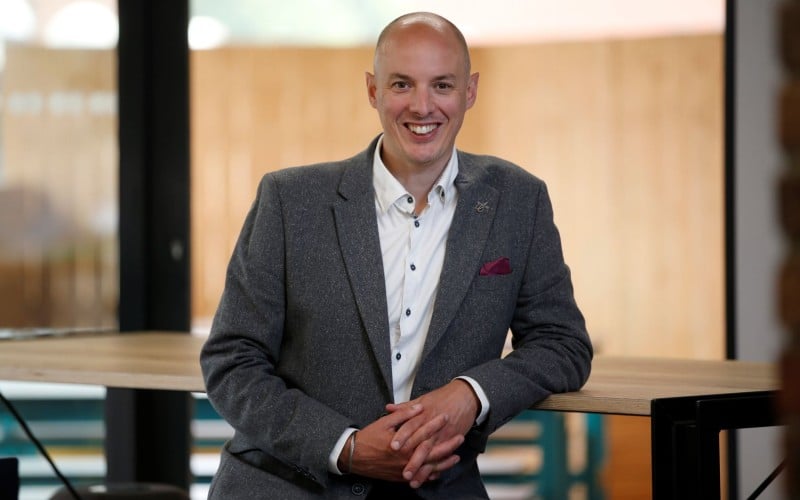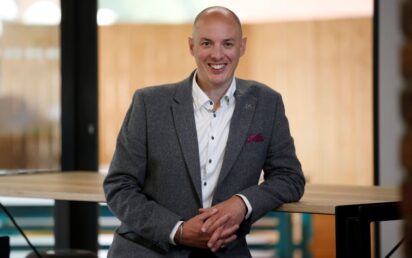Fergus Bailie will never forget the day he realised the biggest obstacle to his company’s future growth was staring back at him in the mirror.
The father-of-two is the CEO of Bailie Group, a 158-year-old family-owned group of agencies and consultancies including strategic change agency CDS, technology PR platform provider Newspress and research company Simple Usability.
Bailie originally joined the group when he started at CDS in 2007, having previously spent five years at PwC.
He took his current role as CEO of Bailie Group in 2017 and helped oversee a restructure of the business that moved it away from being a traditional printing and manufacturing organisation to more of a technology-led professional services business.
Recalling what happened next he says: “The second biggest challenge was to identify the barriers to growth. What was holding us back? I’d been MD of the group for a couple of years and the number one thing holding us back was me.
“We were relatively broad in terms of our service offering and I was determined to be the expert in everything we did.
“I felt I had to know more than anybody else. I had to work harder than everybody else. One of the traits of a family business is the feeling of having to prove yourself.
“What became clear was I wanted to be an expert in everything but there were people who knew more than me.”
Imposter syndrome
Speaking at TechBlast’s latest Going 4 Growth roundtable he says it’s ok to suffer from a bit of imposter syndrome.
“It was about self-awareness,” he admits. “I came from the point of view that we all suffer from imposter syndrome to a greater or lesser extent but I could see that there were people with deeper knowledge than I had.
“I came to the conclusion that I lacked the depth of knowledge in certain sectors. I was having to work longer hours to keep on top of things. If we wanted to kick-on I couldn’t keep doing that.”
The realisation acted as an epiphany for Bailie and was the catalyst for a period of hyper growth at the Leeds-based business.
“What we did was restructure the organisation around specialists so that meant we had to bring in people who were better than I was and smarter than I was,” he says.
“My role became more around facilitation. How do we identify their path to growth and create the environment for them to succeed?
“We have not got private equity or third party funding because we’re a family-run business so we had to decide how we use our finance for the long-term benefit of the business.
“Then we started to grow. We started to win new clients. Then the focus had to be on supporting these operations.
“Then we had to get the infrastructure right to support the business to scale to the next stage.
“When we got to £15m and £20m we had to restructure to kick on to £30m and £40m. Last year we hit £50m.”


